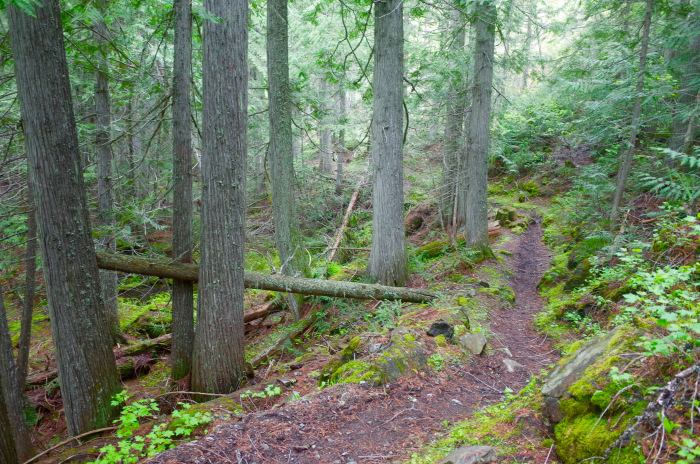New Congress moves to facilitate public lands transfer
Posted by on 5th Jan 2017
Walking in the woods, on land open to all, is the quintessentially American activity.

The most significant conservation victory of the past few years has been in the conversation about US public lands and public lands transfer. By late 2015 it had become axiomatic in almost all circles, even those in which conservation is rarely a prominent topic, that transferring federal lands to the states was not a good idea. A year ago President-elect Trump saw fit to come out against the idea quite strongly, and his choice of Interior secretary has been followed quite closely, in large part because of what that choice might say about how the Trump administration will manage the lands transfer question.
All of this explains why the recent adopting rules for the 115th Congress have received so much attention. These obligatory and prosaic documents are necessary for government in the United States to function, and this most recent set includes provisions allowing members to be fined for using Periscope on the floor, and restricting lobbyists from the Congressional gym. It also includes a provision, reportedly introduced by Utah representative Rob Bishop, pertaining to how the House of Representatives might convey Federal Land to a State (page 35 of the above PDF):
In the One Hundred Fifteenth Congress, for all purposes in the House, provision in a bill or joint resolution, or in an amendment thereto or a conference report thereon, requiring or authorizing a conveyance of Federal land to a State, local government, or tribal entity shall not be considered as providing new budget authority, decreasing revenues, increasing mandatory spending, or increasing outlays.
The term ‘‘conveyance’’ means any method, including sale, donation, or exchange,by which all or any portion of the right, title, and interest of the United States in and to Federal land is transferred to another entity.
The term ‘‘Federal land’’ means any land owned by the United States, including the surface estate, the subsurface estate, or any improvements thereon.
The term ‘‘State’’ means any of the several States, the District of Columbia, or a territory (including a possession) of the United States.
It does not take someone well versed in legalesse to see that divorcing the monetary side of public lands question in questionable. Fiscal questions, such as the funds necessary for proper management and the potential revenues imbued in these lands (be it via energy, ranching, or tourism), have been at the center of the discussion. The President-elect himself, in the Field and Stream interview linked to above, noted that the value lands hold for the country as a whole is the first reason to keep them in federal custody.
Significantly Ryan Zinke, current Montana congressman and presumptive Interior Secretary, voted in favor of the above rules package.
The Washington Post wrote yesterday that "The immediate impact of the rules change is that lawmakers cannot raise a budgetary point of order if a land transfer bill comes to the floor. Under existing House rules, any measure that costs the U.S. Treasury money must be offset by either budget cuts or a revenue-raising provision."
Conservation organization Backcountry Hunters and Anglers, to which we at Seek Outside have given extensive support, wrote "Buried in a litany of other measures is language inserted by Congressman Bishop that would make it easier to give away America’s public lands. For sportsmen, this provision sticks out like a sore thumb."
If you are reading, there is a high probability that as a Seek Outside customer you spend a lot of time outside, and our research has shown us that even our international customers have either visited the US in large part to see our public lands, or aspire to. In either case, our collective future would be well looked after if in the coming months we all pay close attention to these issues.
…